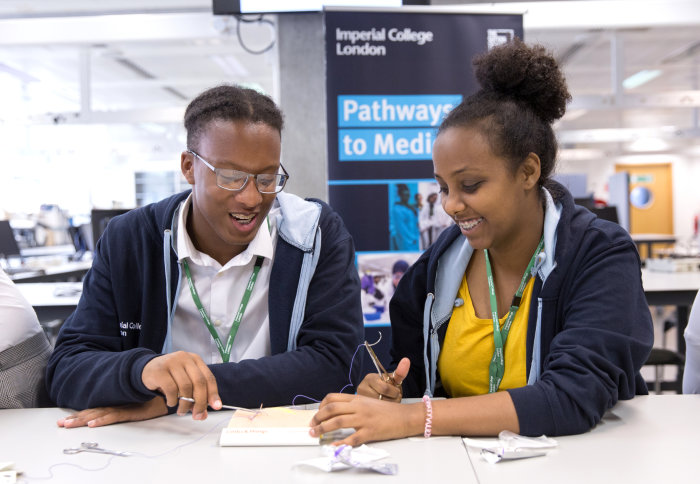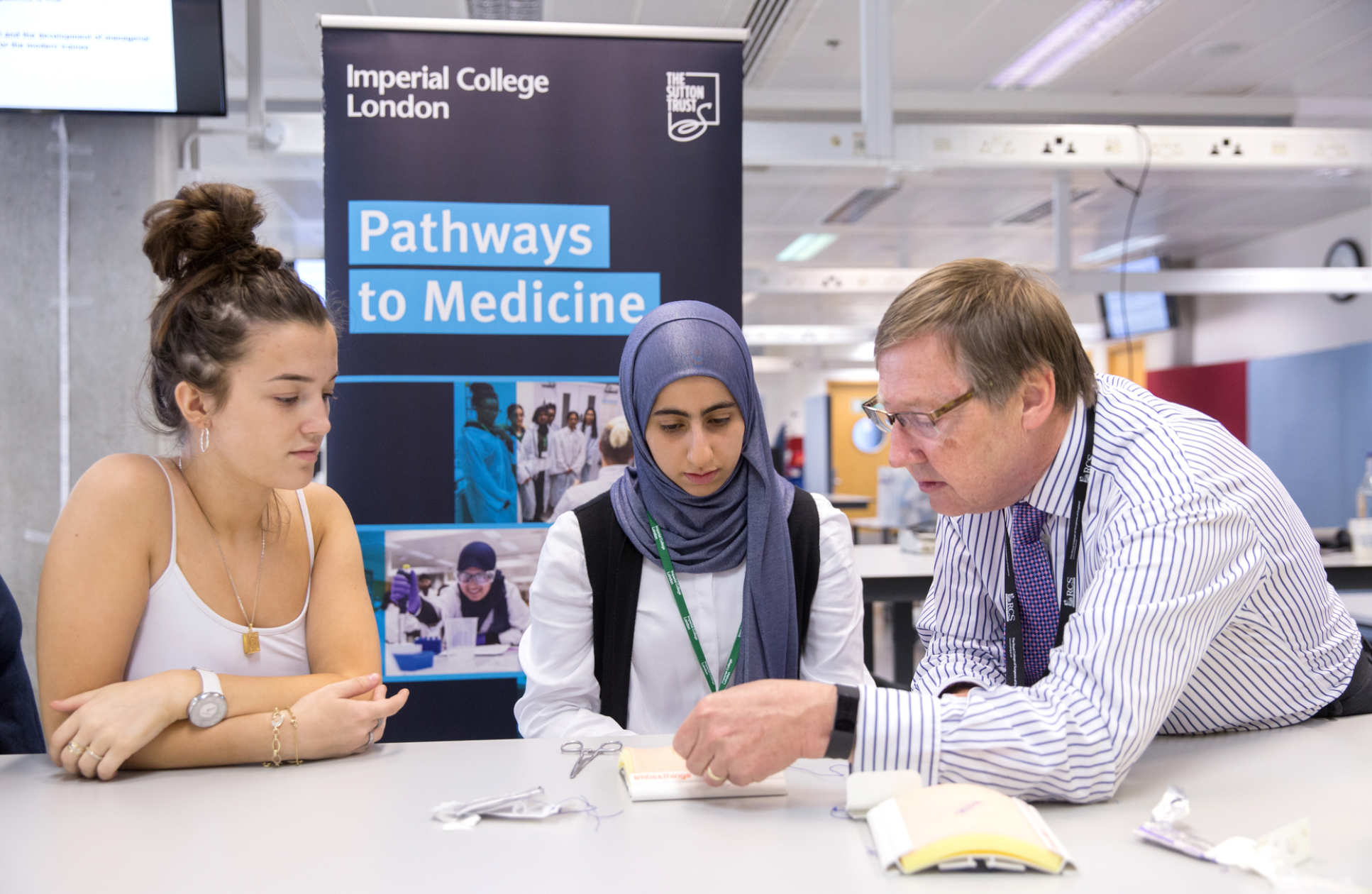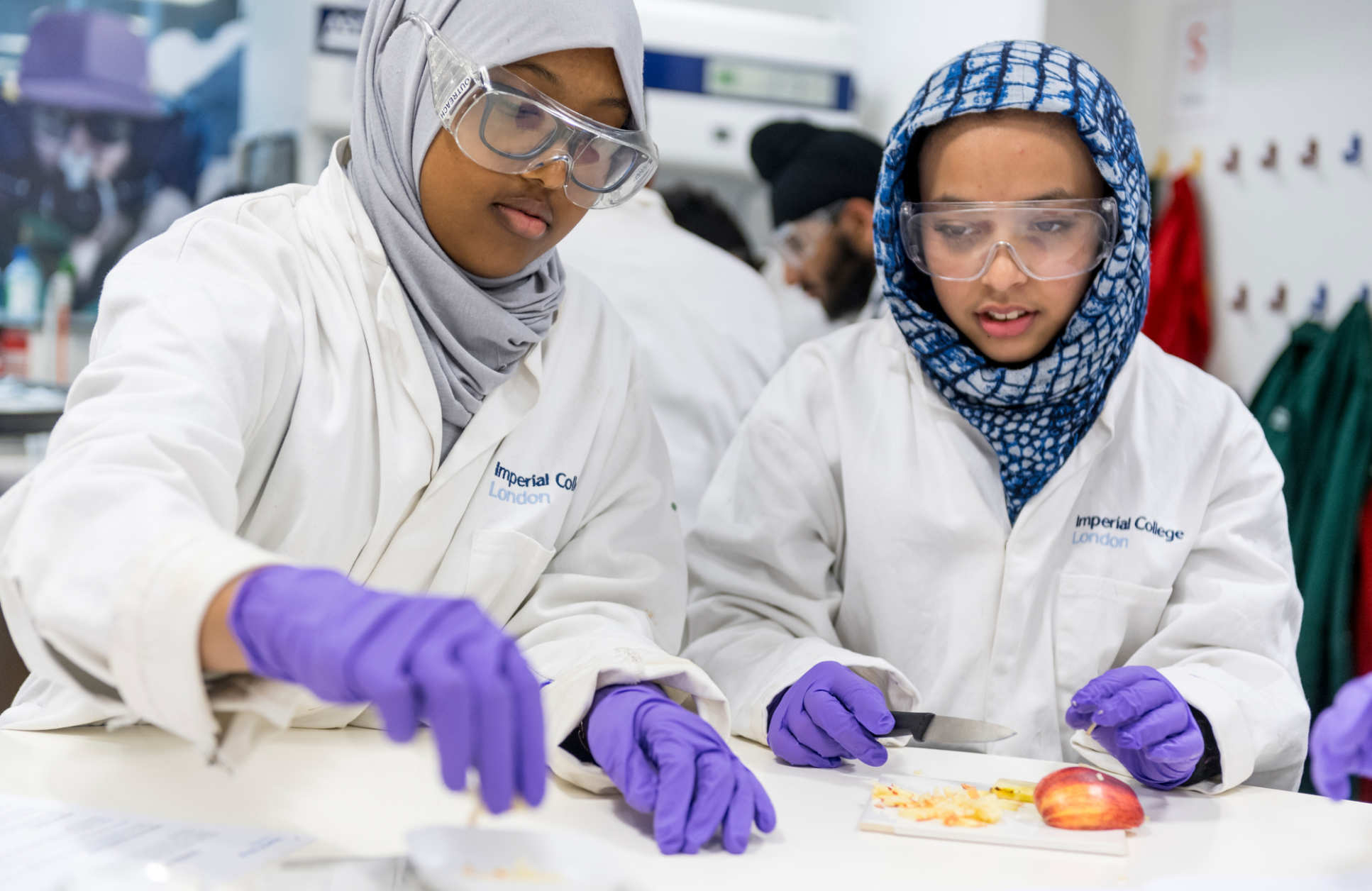Imperial to widen access and increase diversity as ambitious plans launched

Students on the Pathways to Medicine programme at Imperial
Imperial has outlined plans to attract the best and brightest students over the next five years, irrespective of their background.
The five year programme, agreed with the Office for Students for Access and Participation, explains how the College aims to widen participation through a new series of outreach programmes, and more targeted deployment of existing initiatives, for students from disadvantaged groups.
 Imperial’s new plans include:
Imperial’s new plans include:
- Piloting changes to admissions systems, including guaranteed interviews or lower offers for underrepresented groups in some departments.
- Expanding successful outreach programmes, such as STEM Potential, to areas outside London.
- Launching a new outreach programme aimed specifically at black students.
- Rolling out a free digital programme to support students taking Further Maths
- Exploring the establishment of a Maths Sixth Form School targeting underrepresented groups.
The moves come as recent data show access gaps at Imperial: students from some socio-economic and ethnic backgrounds are gaining fewer places at Imperial than expected. When those students gain places at the College, there are no statistically significant attainment gaps.
Inclusive excellence
 Imperial’s Provost Ian Walmsley said the College is determined to close this access gap, as the five year Access and Participation Plan begins.
Imperial’s Provost Ian Walmsley said the College is determined to close this access gap, as the five year Access and Participation Plan begins.
Professor Walmsley: said: “Excellence is not exclusive. We want to attract the very best applicants from all backgrounds, and ensure they go as far as their talents can take them. This is at the core of our ambition as a College.
“We know that students from some backgrounds are less likely to take up places here, and we want to fix that. Over the next five years we will implement ambitious plans to increase access to our courses.
“Imperial will always be a rigorous and academically stretching university. This is not about lowering our offers, but attracting the students most likely to thrive and excel at Imperial. We cannot afford to miss out on talent. Understanding what barriers might exist, and how we can dismantle them, is essential.”
Ambitious plans
The plans include work to build on Imperial’s success in attracting underrepresented students from London through programmes such as STEM Potential and Pathways to Medicine by launching similar multiple intervention outreach programmes in target regions across the UK.

The College will also launch a new programme targeting black students, who are particularly underrepresented at Imperial when accounting for its London location. The College has the eventual aim of doubling the number entering Imperial by 2024-5.
Imperial will continue to drive attainment in Maths through a number of initiatives, including a new open-access digital programme to support at least 100 participants a year studying Further Maths building on a pilot digital programme for A Level Mathematics.
The College is exploring the possibility of establishing a mathematics-focused Sixth Form School targeting both students from lower socio-economic groups and black students. These programmes recognise the importance of high attainment in mathematics at GCSE and A Level for accessing STEM courses at highly selective universities.

Admission pilots, ranging from guaranteeing interviews in some departments to considering making slightly lower than standard offers in others, will also be introduced.
Building momentum
The plans add momentum to ongoing access and education reforms at the College.
Imperial provides a wide range of scholarships and one of the most generous bursary schemes of any UK university to support undergraduates through their studies, with student financial support of up to £5,000 a year. The College is also making learning and teaching more inclusive by reviewing and redesigning of 102 undergraduate programmes so that we are creating equal opportunities for our students.
All universities who want to charge full fees to domestic students have to produce access and participation plans which set out how they will improve equality of opportunity for underrepresented groups to access, succeed in and progress from higher education.
These plans must also be approved by the Director for Fair Access and Participation and OfS, who then monitors the plans to make sure universities are honouring their commitments to students.
Article text (excluding photos or graphics) © Imperial College London.
Photos and graphics subject to third party copyright used with permission or © Imperial College London.
Reporter
Hannah MacLachlan
Communications and Public Affairs
Andrew Scheuber
Communications Division